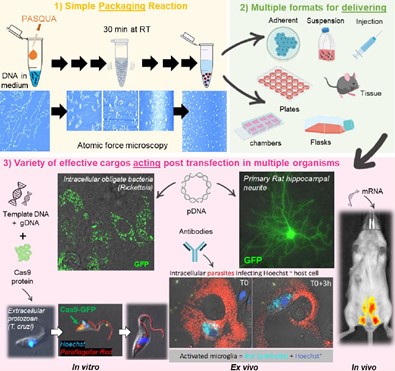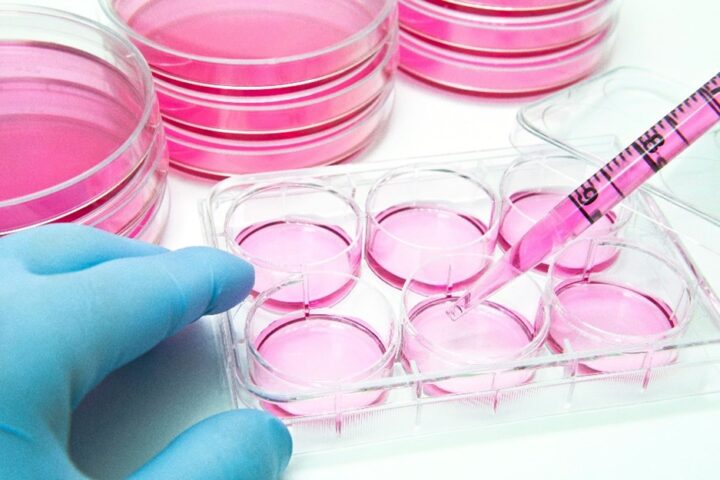The delivery of exogenous nucleic acids into eukaryotic cells is essential in various fields such as cell and molecular biology research, gene therapy and the development of RNA and DNA based vaccines. This delivery allows the study of gene expression, as well as the establishment of cell lines. Furthermore, transfected cells can be used for many different applications and protocols like virus production and stem cell reprogramming.
One of the main obstacles found when performing transfection assays is that nucleic acids are susceptible to degradation by nucleases, and per se unable to cross the cell membrane due to their size and negative charge. Therefore, there is currently a necessity for alternative gene delivery methods.
With the aim of optimizing transfection protocols, researchers from Universitat de les Illes Balears and the London School of Hygiene and Tropical Medicine have developed a broad scope chemical carrier that can package nucleic acids into nanosized particles. The invention proposes a new polymer useful as a general-purpose artificial vector (PASQUA) for the delivery of genetic material (DNA and RNA) and peptides, regardless of their size and structure.
It is a non-viral vector that has proven to be effective for transfection in different systems such as eukaryotic cells and single cell parasites. The vector’s chemical structure is squaramide based, and it is synthesized in a single step at room temperature. The cell transfection protocol using PASQUA only requires two steps, being the first one the formation of the polymer nucleic acid complex followed by the incubation of these complexes with the cells to be transfected.

The researchers have performed successful transfection experiments using this new polymer in immortalized cell lines, as well as transformed cell lines and primary cultures. Furthermore, the efficiency of PASQUA polymer has also been tested in microorganisms such as symbiotic and asymbiotic bacteria. In addition, proof of concept experiments have validated at a laboratory scale the potential of PASQUA as a non-viral vector for multiple applications such as gene editing, vaccine delivery and gene therapy.
Benefits:
- Efficient technology, being able to provide a broad spectrum of transfection procedures with a simple protocol.
- Cost-effective, the use of this polymer does not require any complex equipment or additional manipulation.
- It allows the encapsulation and subsequent transfection of several macromolecules (RNA and peptides) regardless of their size and structure.
- It represents a new alternative to perform transfection in organisms for which there is no efficient transfection protocol.
The represented institution is looking for a collaboration that leads to commercial exploitation of the presented invention.
Institution: Universitat de las Illes Balears
TRL: 3-4
Protection status: Patent Application
Contact: Carlos Gredilla / c.gredilla@viromii.com

